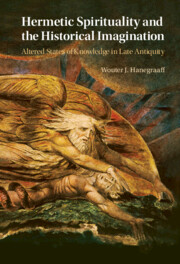In his commentary on the Timaeus, the Neoplatonist Iamblichus argues that time is logically antecedent to change inasmuch as time is no mere aspect of change. Naturally, scholars appraise this thesis in light of Neoplatonic metaphysics. Nevertheless, they neglect the philological framing of this thesis, and thence the philosophical implications thereof. Only J.M. Dillon acknowledges this framing, though even Dillon does not acknowledge the philosophical implications thereof. This article illustrates the logic of said thesis vis-à-vis the Iamblichean exegesis of Ti. 38b7–c1 (Iambl. apud Simpl. in Phys. 1.794.21–7 Diels, Iambl. in Ti. fr. 67 Dillon). Beginning from the intuition that time is no mere aspect of change, Iamblichus argues that time can persist apart from change, and thereupon, given the Platonic notion that time is the everlasting image of Eternity qua paradigm, Iamblichus intuits that time is no mere image but everlasting in its own right, being itself a paradigm. Yet this thesis rests upon the indeterminateness of the Platonic title τὸ παράδειγμα τῆς διαιωνίας φύσεως (‘the paradigm of a thoroughly everlasting nature’) at Ti. 38b8 and, still more so, upon the reflexiveness of the ambiguous ΑΥΤΩΙ (that is, αὐτῷ ‘to it [the paradigm]’, if not αὑτῷ ‘to itself [as paradigm]’) at Ti. 38c1. Inasmuch as the subject of the Platonic title is indeterminate between Eternity and Eternal Being qua intelligible everlastingness, Iamblichus construes ΑΥΤΩΙ not as a mere reflexive but as self-reflexive, with αὑτῷ referring to Time qua intelligible paradigm. In this light, the Platonic lemma grounds the Iamblichean thesis.
